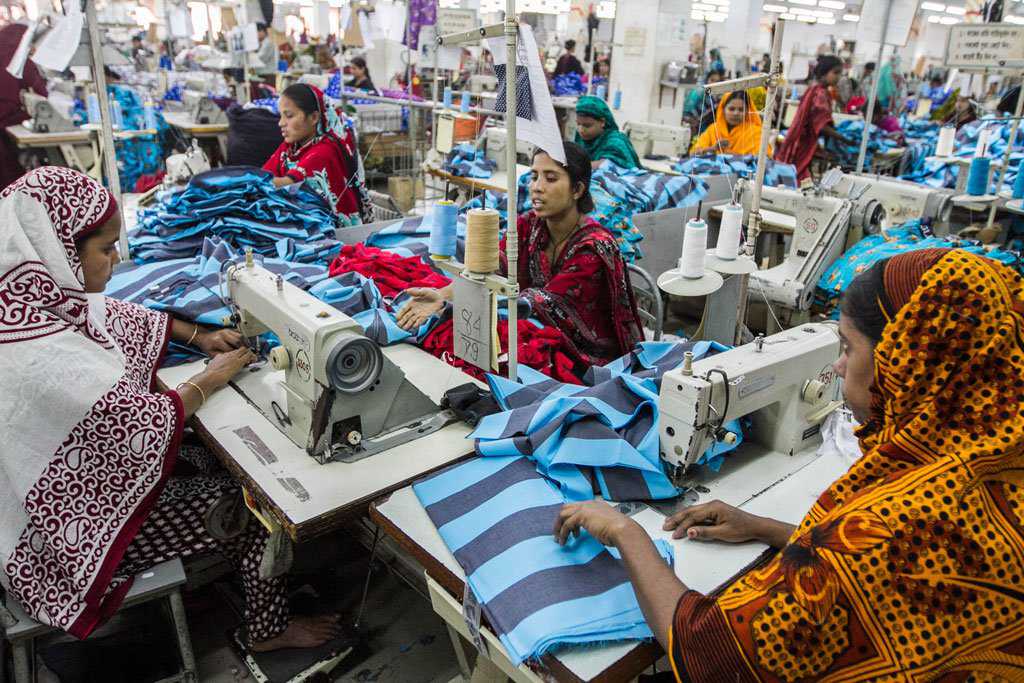Brexit anxiety weighs on Bangladesh exports to UK

The growth prospect in the third largest market for Bangladeshi goods could weaken further as the uncertainty of a no-deal prospect still clouds the Brexit process
The tension over Brexit has slowed down Bangladesh's export growth to the UK, as earnings from the European country during the first half of the current fiscal year posted only a 3.16% increase, compared to 14.42% overall export growth for the country.
The growth prospect in the third largest market for Bangladeshi goods could weaken further as the uncertainty of a no-deal prospect still clouds the Brexit process.
According to the Export Promotion Bureau (EPB), Bangladesh earned $2.04 billion from exports to the UK during July-December of the 2018-19 fiscal year. The figure was $1.98 billion over the same period a year ago.
In the last fiscal year, Bangladesh's overall export earnings from the UK saw an 11.76% growth to $3.99 billion, compared to $3.57 billion in the previous fiscal year. In FY 2016-17, export growth to the UK was 12.63%, reaching $3.72 billion.
In the July-December period of the current fiscal year, Bangladesh apparel exports to the UK stood at $1.87 billion, up by 1.30% from the previous year. In the same period last year, the growth was 20.70%.
“Since there was slowdown in the UK economy due to Brexit deal, the importers went slow to import goods to observe the trade policy in the aftermath of the EU divorce,” BGMEA Senior Vice President Faruque Hassan told the Dhaka Tribune.
Over the prevailing uncertainty of Brexit, UK importers went slow, affecting the import of goods from Bangladesh. Considering trade policy after Brexit, importers in the UK did not place additional works orders, added Hassan.
On the other hand, economic slowdown in that country, caused by slower job growth and GDP growth, has cut the demand for goods.
“It is true, there is an uncertainty in the UK economy. Now, the question is what will be the trade relation with other countries after Brexit. As a result, the anxiety slowed down economic growth and employment,” Centre for Policy Dialogue (CPD) Research Director Khondaker Golam Moazzem told the Dhaka Tribune.
Slower growth in GDP and rise in unemployment has cut demands of consumer goods, which Bangladesh exports to UK mostly, said Moazzem.
According to the Office for National Statistics, the jobless rate of UK stood at 4% in the three months to November, the lowest level since 1975, while the country's gross domestic product (GDP) grew by 0.4% in the three months to October 2018.
On top of that, there is a possibility of fluctuation in the exchange rate of Euro against US Dollar, which is very important for exporters as it is a means of exchange, said Moazzem.
If Brexit lingers
However, industry people as well as economists think it would not be that much of a drag on exports as the government of UK has committed to provide duty and quota-free market access, even after Brexit is completed.
“Since the UK government clearly assured that it will try to maintain the same level of European Union commitment on trade facilities for the LDCs even after Brexit, the possibility on impact on Bangladesh exports to UK is limited,” MA Razzaque, research director of Policy Research Institute (PRI), told the Dhaka Tribune.
If the Brexit process lingers due to rejection and affects EU economy, the market may slow down. And the slowdown may cut demands of goods leading to a slower export growth, said the economist.
But further delay in reaching a consensus about a trade deal with the EU countries after Brexit may prolong the slowdown in trade.
Since there is a possibility of lingering in the execution of the Brexit deal, there will be uncertainty in the economy, said Faruque Hassan, who is also managing director of Giant Group.
So, it will cast a shadow on Bangladesh's export growth to the UK, but it would not continue for a longer period and lead to a negative growth.
Bangladesh enjoys duty-free market access for all products to UK under the Generalized System of Preferences (GSP) under EU trade agreements.
“I hope buyers will stay in Bangladesh as the country has met all the requirements, including safety standards at workplaces and workers’ rights, and supplies quality products at reasonable prices,” said a business leader.
In a referendum held on June 23, 2016, the UK decided to leave the EU as 52% of the people voted for an exit, while 48% voted to stay with the union.
As things stand now, the UK will have to leave the EU by 11pm (UK time) on March 29, in accordance with the negotiations that started on March 29, 2017.
The UK has found itself in a limbo after the January 15 vote in the House of Commons, where the deal negotiated by Prime Minister Theresa May was rejected by the lawmakers by 432 to 202 votes – the largest such defeat a government has conceded in a century.
Source: https://www.dhakatribune.com